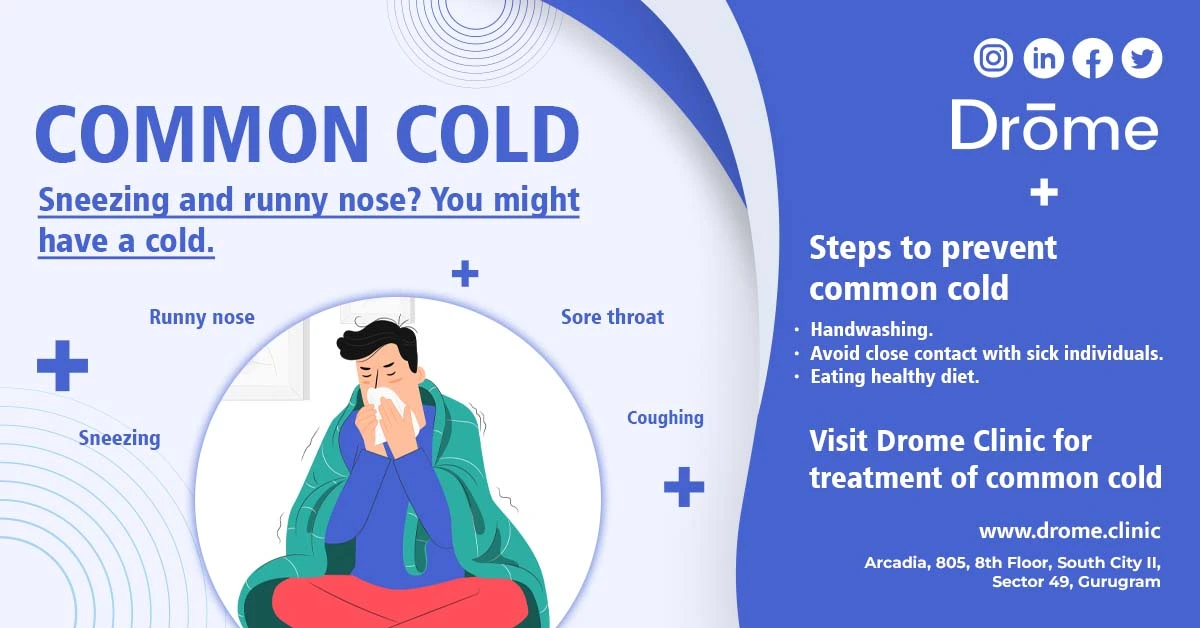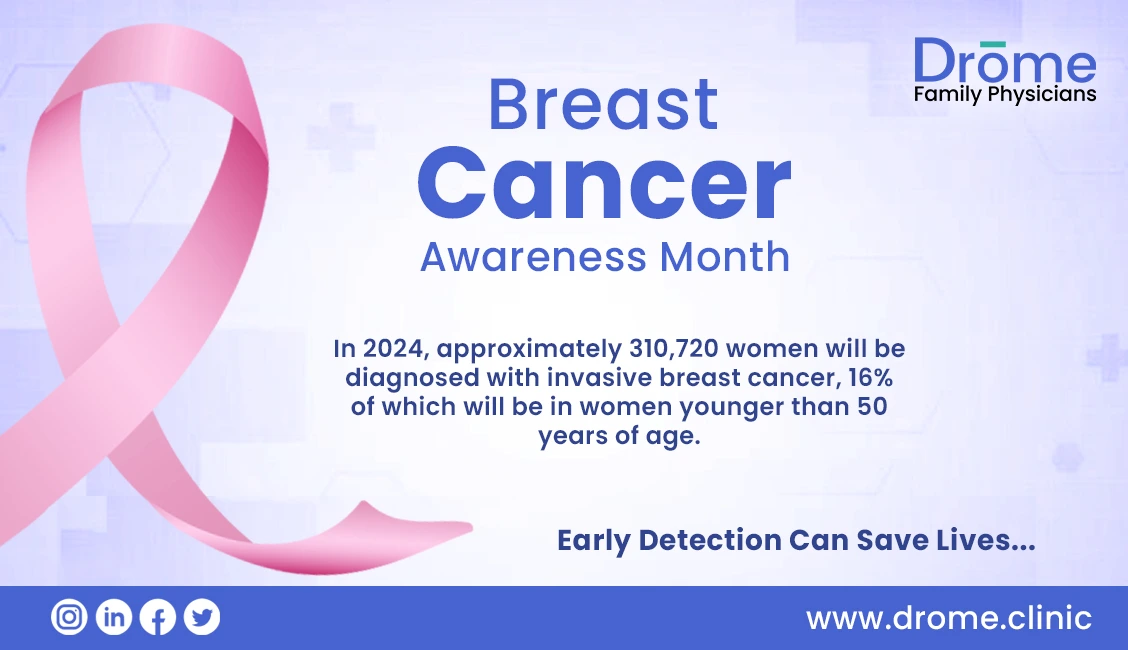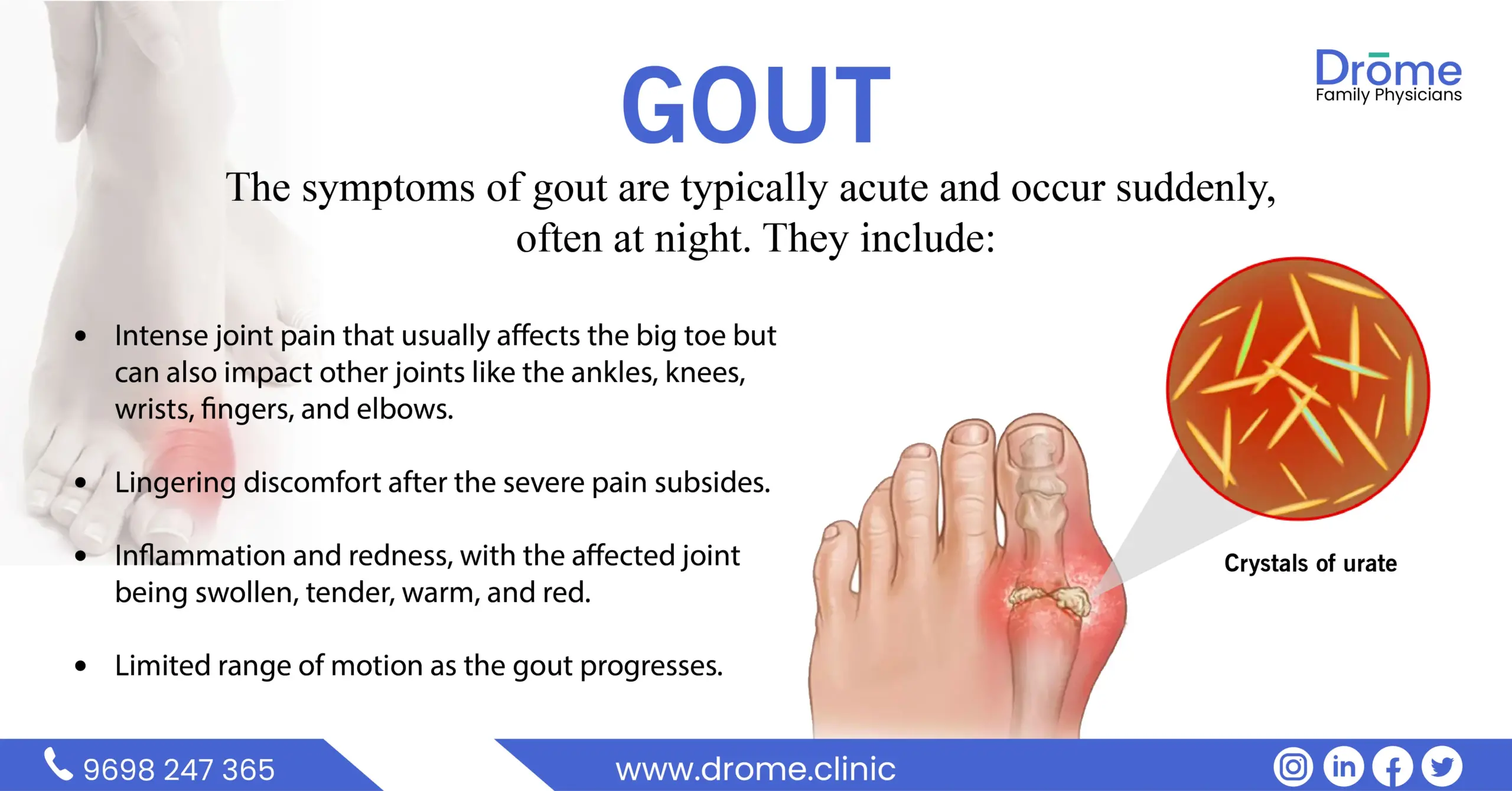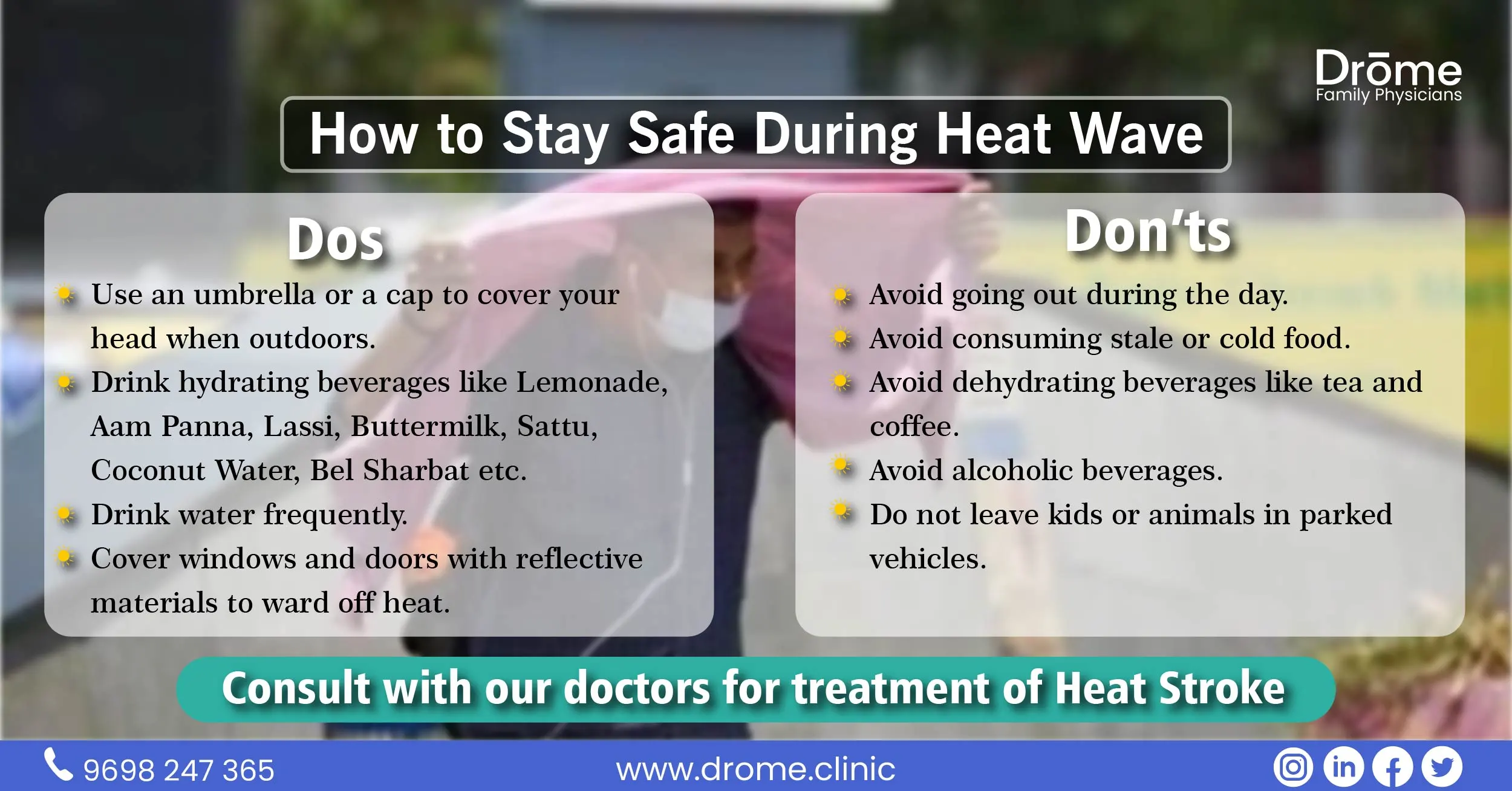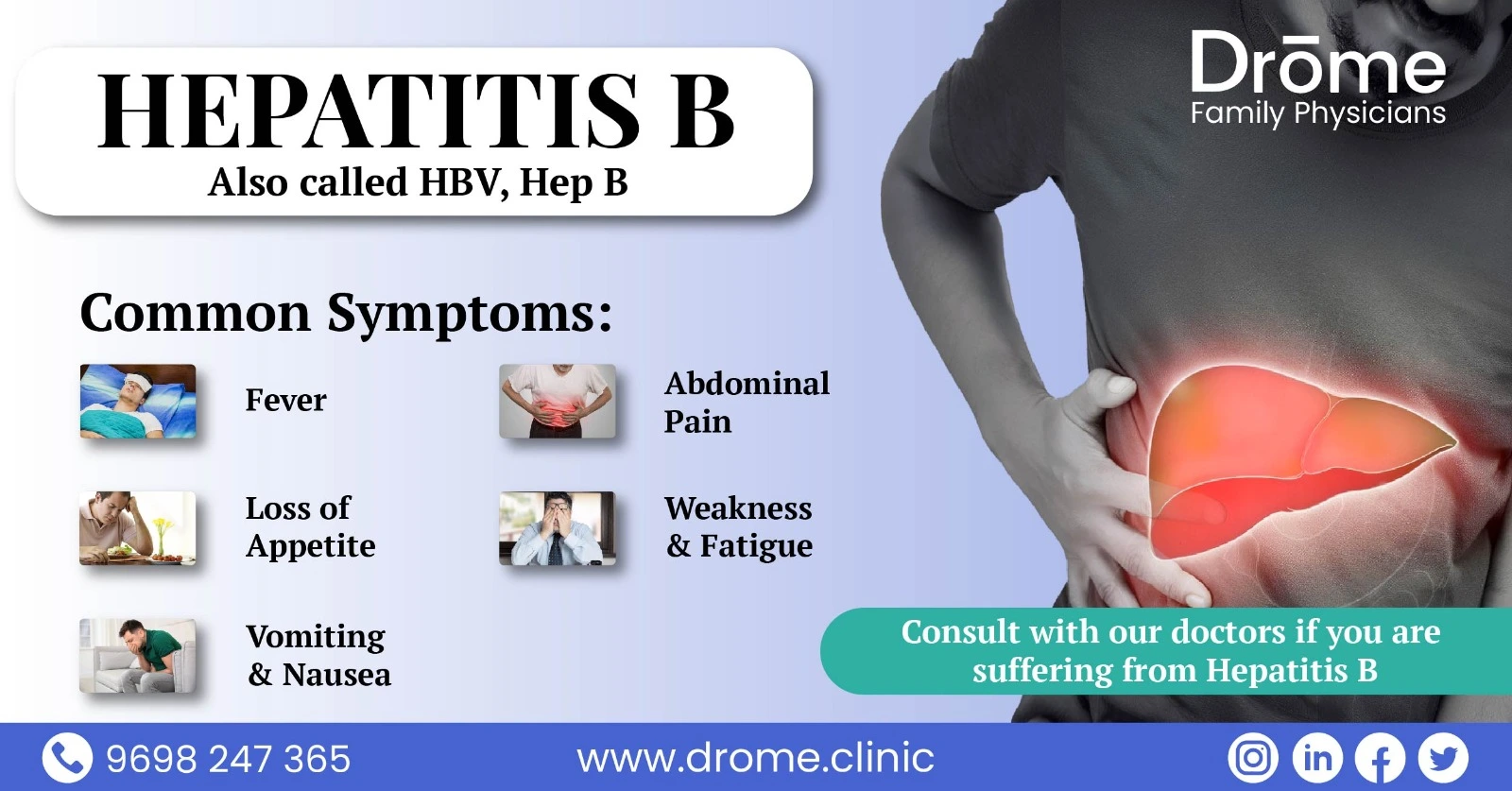Table of Contents
ToggleWhen the common cold knocks, let knowledge and care be your shield and comfort in the battle against the sniffles.
Common Cold
As the seasons change, the common cold invariably makes its rounds, affecting millions of people each year. This blog aims to shed light on the common cold, helping you distinguish it from other illnesses, understand its implications, and explore ways to prevent and treat it.
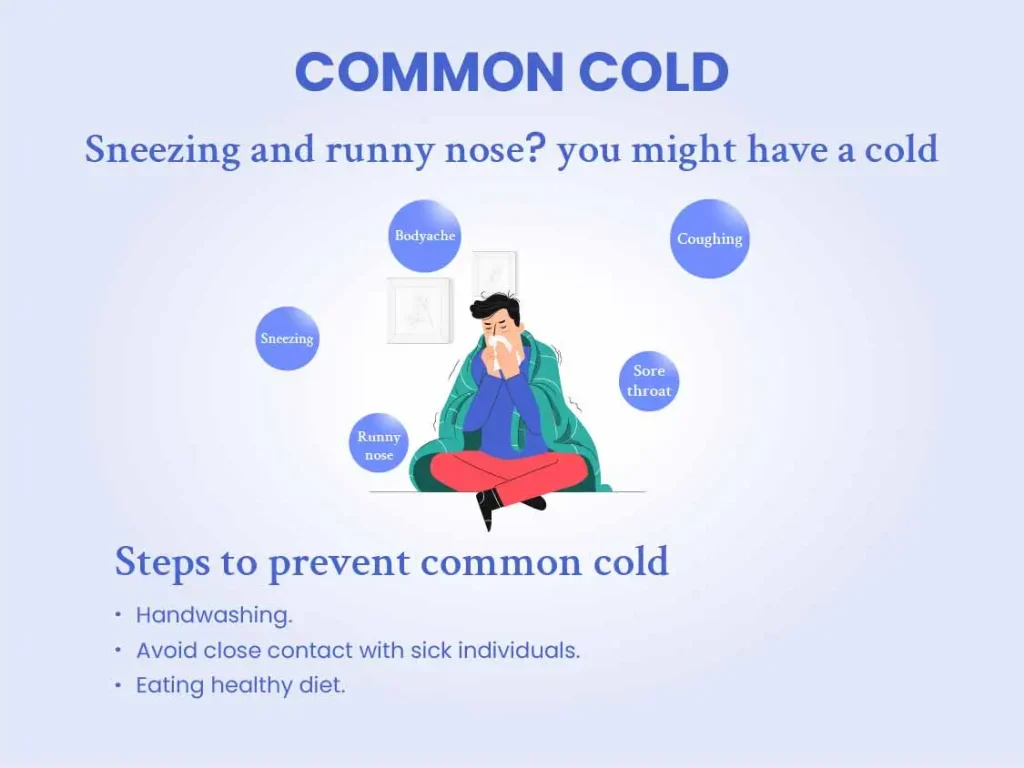
Overview
The common cold is a viral infection of the nose and throat (upper respiratory tract). It is usually harmless. Many types of viruses can cause a common cold, which is highly contagious and more prevalent in certain seasons.
How does common cold spread
The cold is triggered by several different viruses, with rhinoviruses being the most common. These viruses spread through
– airborne droplets when someone sick coughs or sneezes
-or through direct contact with contaminated surfaces.
Risk Factors
Risk factors for the common cold include:
- Age: Young children are at higher risk.
- Immune suppression: Having a chronic illness or immune-compromising condition increases the likelihood of catching cold
- Time of year: Rhinoviruses usually occur year-round but tend to rise in early fall and spring.
- Smoking: Smokers and those exposed to secondhand smoke are more susceptible.
Symptoms
Cold symptoms often include:
- Sore throat
- Runny nose
- Coughing
- Sneezing
- Headaches
- Body aches
Symptoms are usually milder than those of the flu.
Diagnosis
Diagnosis is usually based on symptoms. In some cases, throat swabs may be used to rule out other conditions if symptoms are severe.
Difference Between Cold and Flu
Cold and flu are both respiratory illnesses, but they are caused by different viruses. Flu symptoms are generally worse than the common cold and can lead to more serious health problems like pneumonia.
Medical Care
Most people recover from a common cold without needing to visit a healthcare provider. However, if symptoms are severe or do not improve, medical care is advisable.
Treatment
There’s no cure for the common cold.Most cases of the common cold get better without treatment within 7 to 10 days. But a cough may last a few more days. The following remedies can help ease symptoms:
- Rest
- Fluids
- Over-the-counter medicines like pain relievers and fever reducers
- Humidifiers
- Saltwater gargles
Antibiotics are not effective against viruses and should not be used for a cold.
Complications
While usually minor, some may experience complications such as:
- Sinusitis
- Middle ear infection
- Asthma exacerbations
Prevention
Preventive steps include:
- Handwashing
- Avoiding close contact with sick individuals
- Disinfecting surfaces
- Staying healthy through diet and exercise
Conclusion
The common cold is a regular disruptor but understanding its dynamics can help minimise its impact. By adopting preventive measures and treating symptoms appropriately, we can navigate the cold season more comfortably and healthily.
Frequently Asked Questions
What exactly is the common cold?
The common cold is a viral infection of your nose and throat. It’s usually harmless and characterised by a runny nose, sore throat, cough, and congestion.
Colds are spread by coming into contact with airborne virus particles or touching contaminated surfaces and then touching your face, especially the nose or mouth.
Can a common cold lead to more serious problems?
Yes, in some people, especially those with weakened immune systems, the elderly, or those with respiratory conditions, a cold can lead to complications like bronchitis, pneumonia, or sinus infections.
How long does a common cold last?
Most cold symptoms usually subside within 7 to 10 days, though some symptoms like a cough may linger for a couple of weeks.
Is there a cure for the common cold?
There is no cure for the common cold. Treatment focuses on relieving symptoms and includes rest, fluids, and over-the-counter remedies.
Can I get a cold in the summer?
Yes, while less common, it is possible to catch a cold any time of the year, not just during the traditional “cold season.

